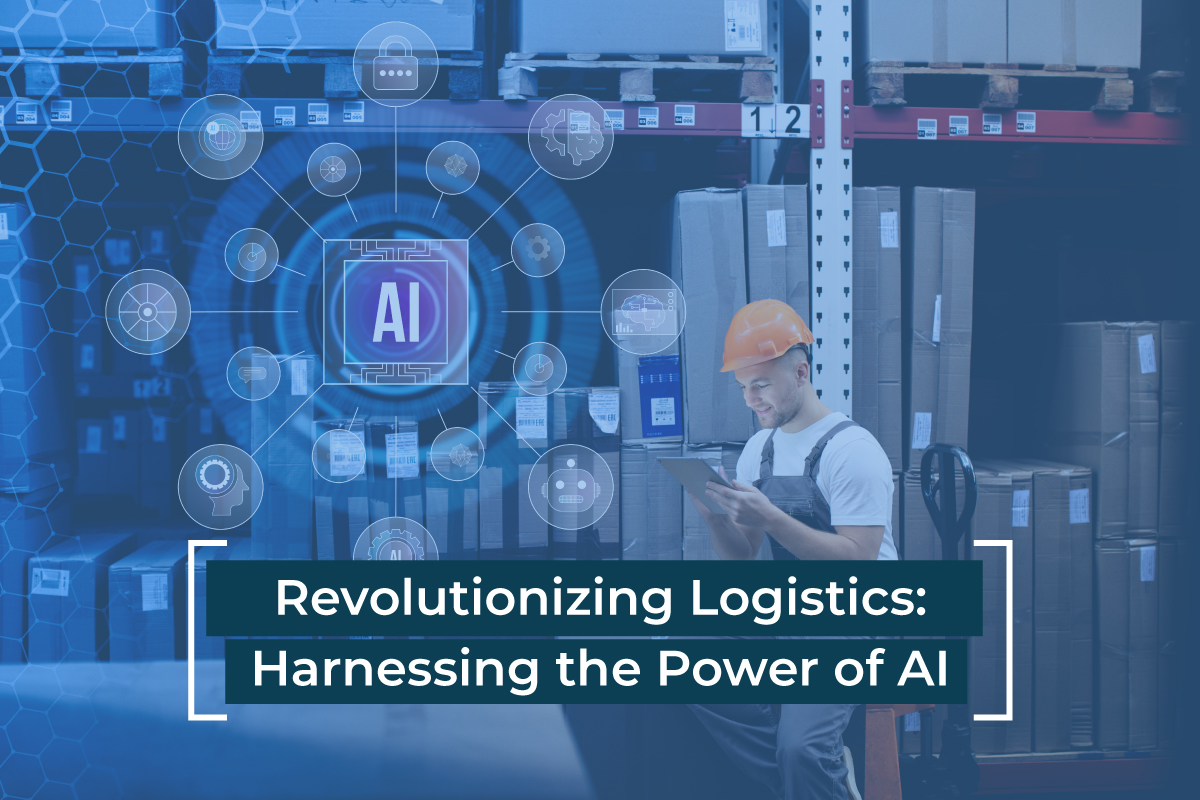In the ever-evolving realm of logistics, the integration of cutting-edge technologies has become the linchpin of transformative growth. Amidst the wave of innovations, the role of AI/ML development service stands tall, marking a revolutionary overhaul in how logistics operates. Delving deeper into AI Integration services, let’s explore the multifaceted advantages it brings to the logistics sector.
What Is AI Integration ?
AI Integration refers to the process of incorporating Artificial Intelligence (AI) capabilities into existing systems, processes, products, or services. Essentially, it’s about embedding AI-powered solutions into the broader framework of an organization’s operations, ensuring a seamless blend of conventional processes with advanced AI functionalities. Here’s a breakdown of what AI Integration involves:
Technology Infusion
AI Integration requires a deep understanding of the specific AI technologies you’re incorporating, whether that’s machine learning algorithms, neural networks, natural language processing capabilities, or other AI components. These technologies are then merged with existing systems.
Data Flow
One of the main fuels for AI is data. Proper AI Integration ensures that there’s a consistent and structured flow of data into the AI systems, allowing them to function optimally. This involves creating pipelines that feed relevant data into AI models and systems.
Operational Alignment
Simply plugging in an AI model into an existing system isn’t enough. AI Integration ensures that the AI Artificial Intelligence solutions are aligned with the company’s operational objectives and processes. This often requires a re-thinking or adjustment of existing processes to ensure smooth integration.
User Interaction
AI Integration also deals with the interfaces and platforms through which end-users (be it employees, customers, or stakeholders) interact with the AI-enhanced systems. This might involve new dashboards, apps, or even voice interfaces.
Continuous Learning And Adaptation
Unlike many traditional systems, AI systems often evolve and learn over time. Proper integration ensures that there’s a mechanism for this learning and adaptation to take place, making the AI solutions even more effective over time.
Five Most Important Logistics Benefits Of AI Integration
Enhanced Forecasting And Inventory Management
Modern logistics thrives on accuracy. Thanks to AI/ML development service providers, logistic enterprises can now leverage tools that masterfully predict market trends. By analyzing years of data, these AI models not only predict demands but also understand seasonal fluctuations, helping businesses tweak their inventories accordingly. No more excessive stock or stockouts; AI ensures a balanced inventory, leading to minimise wastage and maximized profits.
Optimized Route Planning
Every minute counts in logistics. Every shipment delayed can lead to a cascading effect of disruptions. But with AI Integration services, there’s a solution at hand. Vehicles and cargo carriers can chart out the most efficient routes by considering real-time traffic updates, weather forecasts, and road work disruptions. As AI continues its learning curve, these route predictions become even more refined, ensuring deliveries are faster and more environmentally efficient due to reduced fuel consumption.
Predictive Maintenance
The backbone of logistics is its fleet and machinery. But what happens when they break down? Losses accrue, and schedules tumble. However, with AI Integration, these sudden breakdowns can be preemptively addressed. AI, by analyzing data from myriad sensors on machinery and vehicles, can predict when maintenance is due or when a part is on the brink of failure. This foresight reduces costly downtimes and enhances the longevity of the equipment.
Enhanced Customer Experience
In an era where information is at our fingertips, logistic companies must find a way to provide timely and accurate updates. AI Integration services cater to this by offering real-time tracking, exact delivery windows, and even notifications about potential delays. But AI’s role doesn’t stop there. It delves into past data, understanding customer preferences, thereby enabling logistic companies to offer tailored suggestions, personalized touchpoints, and proactive solutions to common customer concerns.
Automated Warehousing And Robotics
Warehouses, often bustling hives of activity, are undergoing an AI Integration metamorphosis. Robot, guided by AI, now manage tasks like picking, packing, and sorting. Their precision is unparalleled, and their capacity to work tirelessly ensures that warehousing operations never hit a lull. As these robots process more tasks, their algorithms evolve, leading to even swiffer operations with minimal errors.
How To leverage AI For Logistics?
Leveraging AI for logistics means tapping into the potential of artificial intelligence to enhance, streamline, and revolutionize various processes within the logistics domain. From predictive analytics to real-time monitoring, AI can offer solutions that drive efficiency, reduce costs, and improve customer satisfaction. Here’s how businesses can leverage AI for logistics:
Demand Forecasting
- Use AI algorithms to analyze historical shipment data, market trends, and other relevant factors to predict future demand.
- Adjust inventory levels, resource allocation, and distribution strategies based on these forecasts.
Optimized Route Planning
- Incorporate real-time traffic data, weather conditions, and other variables to determine the most efficient routes for delivery.
- Machine learning models can learn from past data to continuously refine and suggest better routes over time.
Predictive Maintenance
- Use sensors and IoT devices on vehicles and equipment. AI can analyze this data to predict when maintenance is required, reducing downtimes and prolonging equipment life.
Automated Customer Service
- Deploy AI-powered chatbots and virtual assistants to handle common customer queries, track shipments, and provide real-time updates.
- Use natural language processing (NLP) to improve communication and understand customer sentiment.
Warehouse Automation
- Implement robotic systems guided by AI for tasks like sorting, packing, and storing. These systems can operate round-the-clock and improve accuracy.
- Use AI-powered drones for inventory checks, saving time and human effort.
Conclusion
AI Integration in logistics isn’t a mere upgrade; it’s a paradigm shift. It promises a future where decisions are data-driven, operations are seamless, and customer satisfaction levels reach unprecedented highs. As logistics businesses transition to this AI-enhanced era, they’re not just streamlining their operations but also carving a niche in a competitive, tech-driven marketplace..
















